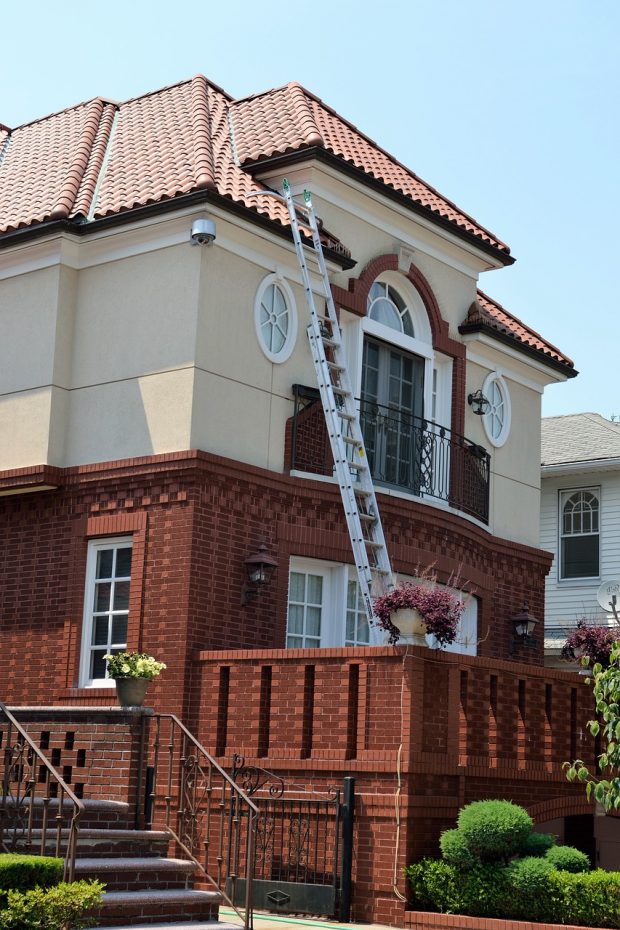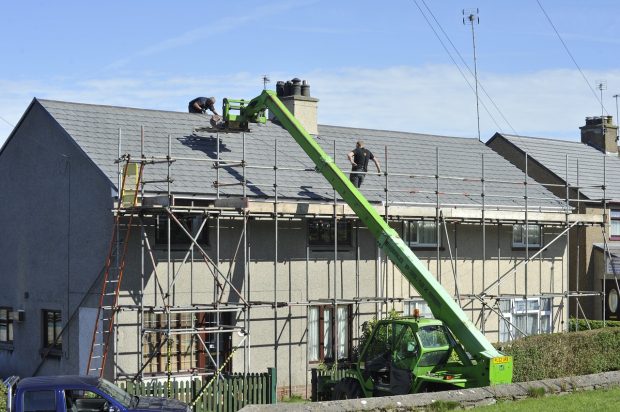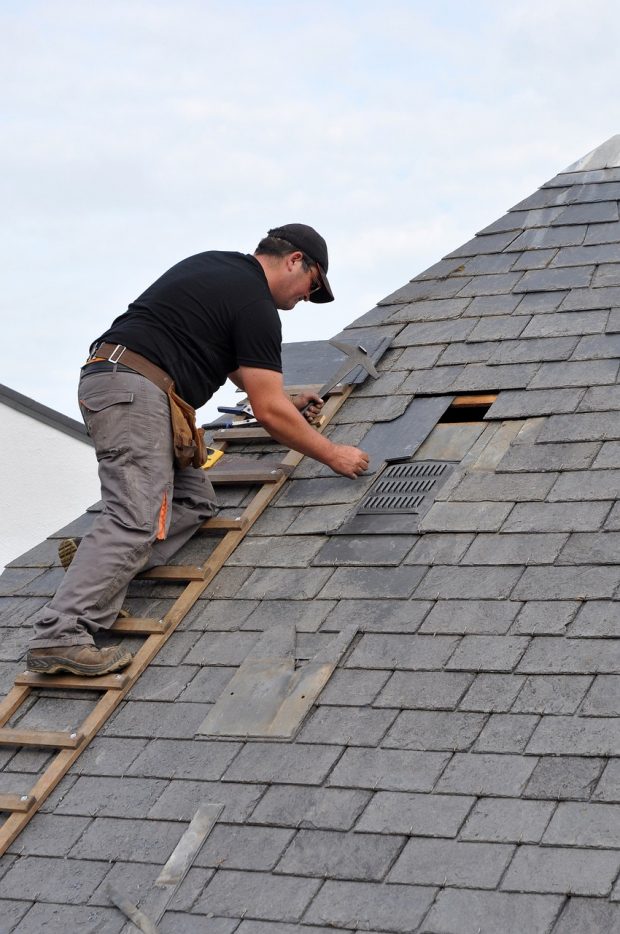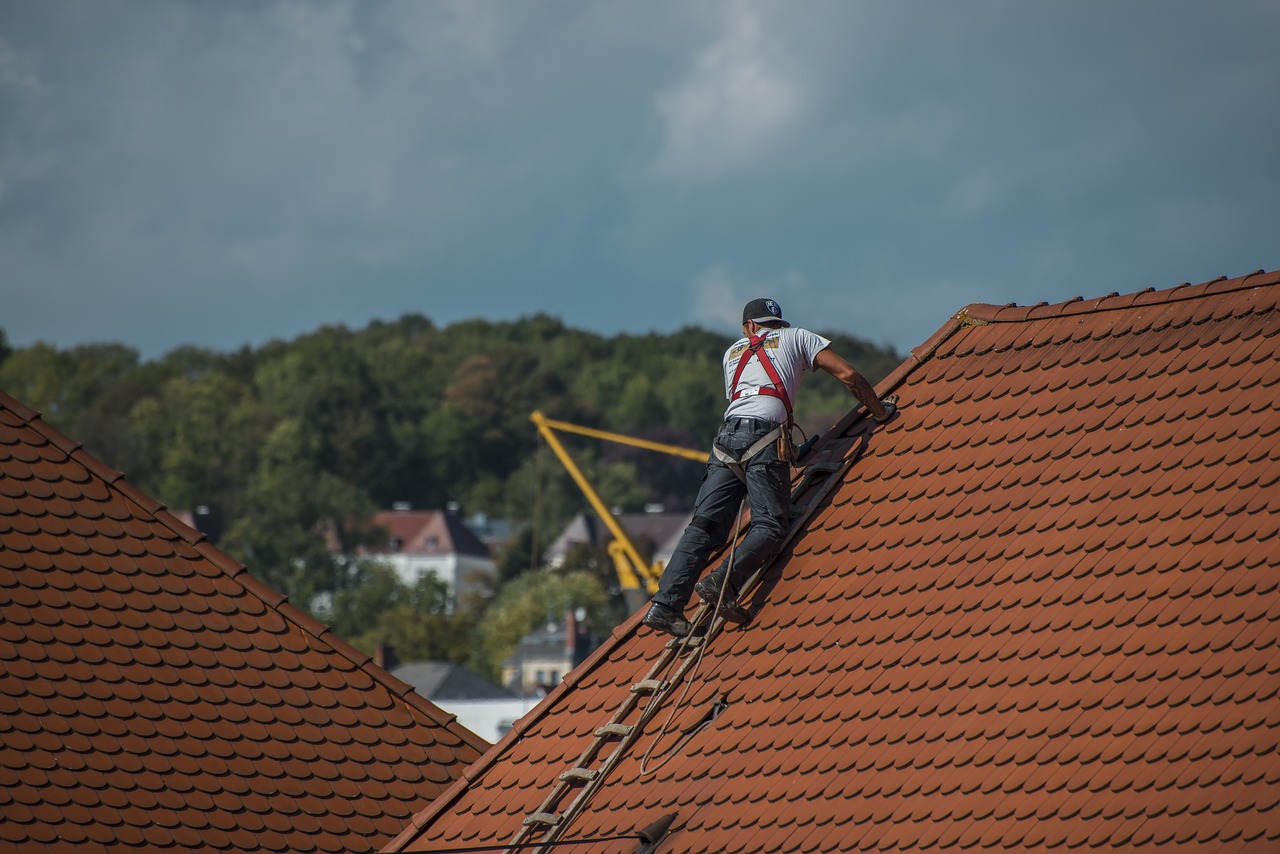Roof repair or renovation is a home improvement task that just won’t wait. You can delay it for a time with a strategically placed tarp or a bucket to catch the drips coming in through the ceiling. But water damage due to a leaky roof can cost you hundreds or even thousands of dollars, so this is one project that simply can’t be put on the back burner.
But at the same time, roofing ranks among the most potentially dangerous jobs you’ll ever undertake, and taking proper safety measures is anything but optional.
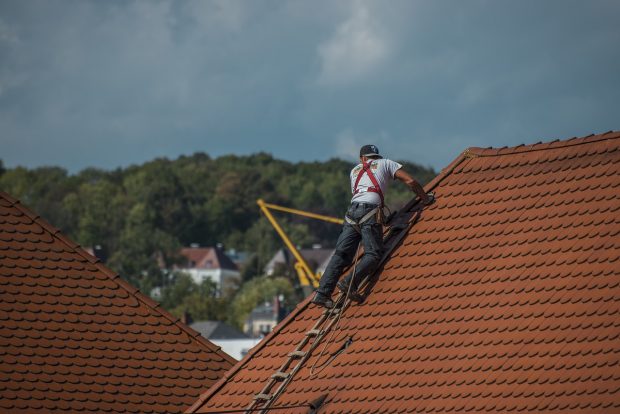
Here are six roof repair/renovation tips that will make your roofing project safer:
Use Fall Protection Equipment
Fall protection equipment for commercial or residential roofing is essential. It includes a quality roof safety harness, roof jacks firmly and strategically placed, sturdy roof-worthy ladders, roof anchors, lifelines, and more. It’s well worth it to invest in the best brands here and use professional level equipment, since your safety depends on it.
And also get guidance in selecting the right fall equipment, and learn how to properly use it before ever stepping foot on your roof.
Use the Right Kind of Footwear
Resist the temptation to just throw on your usual pair of shoes and go walking on the roof. Remember that what’s on your foot is as important to roofing safety as where you plant your foot. Shoes/boots must be sturdily built and have rubber soles with excellent traction.
The soles should also be thick in case you step on a nail, and steel-toed is best when it comes to roof work, to protect your toes from any falling objects.
Observe Good Ladder Safety
Not only do you need a strong, tall ladder to get up/down the roof, but you have to know how to plant it correctly. First, the angle needs to be right. To test the angle, put your toes up against the front of the ladder and see if you can just touch the rungs with your fingertips. If not, adjust it until you can.
Also, make sure the ladder’s base is even with the ground. If using the ladder on uneven terrain, use a piece of plywood to even things out. And use roof anchors at the top of the ladder to secure it to a rafter.
Inform Others of Your Roofing Plans
Let someone else know when you’ll be up on the roof – someone who will be with you at home that day, or else a neighbor who can keep an eye on you. In fact, it’s best if at least two people work together on even a minor roof job. Someone needs to be there to help or call for help in the case of an emergency.
Be Very Weather Conscious
Plan to do your roofing work on a warm, clear day. Don’t go up on an icy or snow-covered roof; and never roof in the rain. High winds can also be a problem.
Watch the forecasts and pick out a good day, and be prepared to change plans in case of unexpected weather events. Roofing is a very weather-dependent activity, so don’t try to be a hero up there.
Only Work on a Clean Roof
Before you even get started on the real work, take the time to sweep off leaves, sticks, and debris. Check for any nails or screws sticking out that might stab your knees as you kneel on the roof decking. And that’s a good reason to wear knee pads too; besides that, they will prevent knee fatigue.
Work slowly and carefully, but safely, rather than rushing and making mistakes. Mistakes can be far too costly (in injuries or worse) when it comes to roofing.


